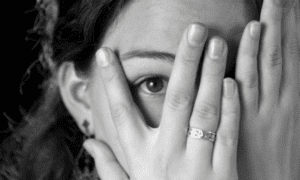
Are you struggling with unresolved behaviour issues from your past? If so, psychodynamic therapy could be an effective tool to help you process, understand and move forward in a better way. This type of therapy focuses on the social relationships between people and their psychological influences as they relate to unconscious thoughts, behaviours and motivations. By exploring these deeper issues, it’s possible to resolve conflicts that have been at play throughout your life. In this blog post we’ll look at what psychodynamic therapy is, how it works and who might benefit most from its use. Read on for everything you need to know about psychodynamic therapy! What is psychodynamic therapy? Psychodynamic therapy is a form of psychological treatment that focuses on exploring the unconscious forces and motivations underlying an individual’s behaviour. Through this approach, individuals can learn to understand how their personal history and experiences shape their thoughts, feelings, and actions. This information can be used to gain insight into current issues that are causing difficulties in life. Additionally, psychodynamic therapy can help individuals become more aware of how their present behaviour is related to patterns that have been established over time. By learning these patterns, individuals can make changes and better manage emotions, thoughts, and behaviour in the future. Ultimately, psychodynamic therapy can be an effective tool for improving relationships and creating greater personal satisfaction. When is Psychodynamic Therapy Used? The following are the events when psychodynamic therapy can be used: ● Psychodynamic therapy is often used to treat depression, anxiety, and other complex mental health issues. ● It can help people gain insight into their past experiences, identify patterns in their behaviour, uncover repressed emotions, strengthen self-esteem, and increase overall life satisfaction. ● It helps individuals become aware of the unconscious processes that may be influencing their current thoughts, feelings, and behaviours. ● This can help people make better decisions going forward and develop healthier relationships with others. ● It can also be used to treat personality disorders and relationship issues. ● If a person is struggling with addiction, psychodynamic therapy can help them understand their underlying triggers and provide guidance on how to cope with cravings. Overall, this type of therapy can help people better understand themselves and their own motivations. This can then lead to greater self-awareness and improved overall mental health. What to Expect from Psychodynamic Therapy? Psychodynamic therapy is a type of talk therapy that focuses on exploring the unconscious mind and its influence on behaviour. It seeks to uncover the underlying motivations and beliefs behind behaviour, as well as search for new insights into past traumas or painful memories. Through this process, it helps individuals gain clarity about their lives and develop greater self-awareness. In psychodynamic therapy, the therapist helps you identify and address issues that may be adversely affecting your life. The goal of this form of therapy is to gain a deeper understanding of yourself, find solutions to current problems, and promote positive changes in your life. During psychodynamic therapy sessions, the therapist will typically challenge you to think differently and consider new perspectives. You might be asked to describe your feelings or experiences in detail, as well as reflect on what they mean and how they are affecting your life. The therapist makes the possible effort to make you feel comfortable and make you step out from the present pathetic condition of your life. The therapist may also help you identify patterns of behaviour that have been holding you back and help you develop healthier coping strategies. Psychodynamic therapy is based on the notion that our unconscious holds answers to many of our current challenges. By exploring these deeper dynamics, individuals can gain insight into their past and present life experiences and make more informed decisions. Many people report feeling relieved after engaging in psychodynamic therapy, as they are better equipped to understand themselves and the world around them. Although it is not a quick fix, psychodynamic therapy can be incredibly effective in helping people to gain greater self-awareness, manage stress and anxiety, cope with difficult emotions, and develop healthier relationships. Pros and Cons of Psychodynamic TherapyPros of Psychodynamic Therapy ➔ Focuses on the unconscious aspects of behaviour, allowing for a deeper understanding of issues ➔ Can help a person identify and work through deep-rooted issues that are causing emotional distress or mental health challenges ➔ Helps to increase self-awareness and personal insight ➔ Encourages personal growth and freedom from destructive behaviours Cons of Psychodynamic Therapy ➔ Can take a long time to identify underlying issues and provide resolution ➔ May not be as effective in dealing with more immediate behavioural problems or crises ➔ Can be expensive and require multiple sessions to get results ➔ Not all therapists are trained in the psychodynamic approach and may not be qualified to provide it as a treatment option What to look for in a Psychodynamic Therapist? When it comes to psychodynamic therapy, there are a few key components to look for in a therapist: ● A good psychodynamic therapist should be able to provide an empathetic and non-judgemental environment that is conducive to exploring difficult topics. ● They should also be knowledgeable about the theory behind psychodynamic therapies and have experience working with individuals dealing with a variety of issues. ● Additionally, it is important that the therapist has an in-depth understanding of your individual needs and can create an effective treatment plan tailored to those needs. ● Most importantly, you should feel comfortable confiding in your psychodynamic therapist and be able to trust them to help you on your journey toward healing. ● Make sure that your therapist can keep your information and particular behavior patterns confidential. Because, sometimes, exposing that piece of information that is sensitive to the patient can break your trust relation and spoil your image. Hence, make sure that the therapist is concerned about your information the way you are. ● Finding the right psychodynamic therapist is an essential part of getting the most out of this type of therapy. With the right person and approach, you will be able to uncover deep-rooted issues and begin working toward a more fulfilled life. Thank you for reading






